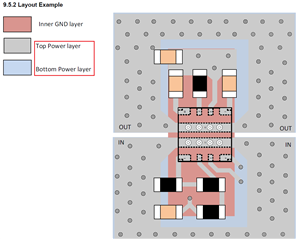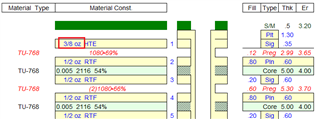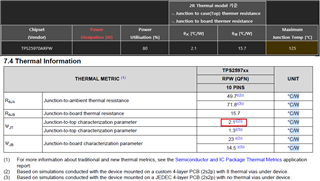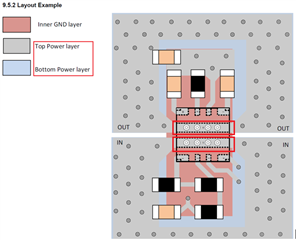Hello,
My customer reviews to use the TPS25970ARPWR.
They have some questions about the TPS25970ARPWR device.
Q1) Is this part universally used? Are EOL issues likely to occur in the near future?
Q2) Even though it is a 7A product, the package is quite small. Do you have a verified history of being applied to mass production? Is it stable without damage to the chip even if it uses more than 5A?
Q3) Looking at the Layerout structure and EVM Data, the PCB space seems to be insufficient. Currently, the top pad thickness of the PCB to which the chip below is to be applied is 3/8 oz. Are there any problems that may occur due to the small contact area of the In/out Pin?


Q4) Is there any heat problem due to the small package?
They couldn't find information about the power dissipation value below among thermal related materials. please tell us this value

Thank you.


